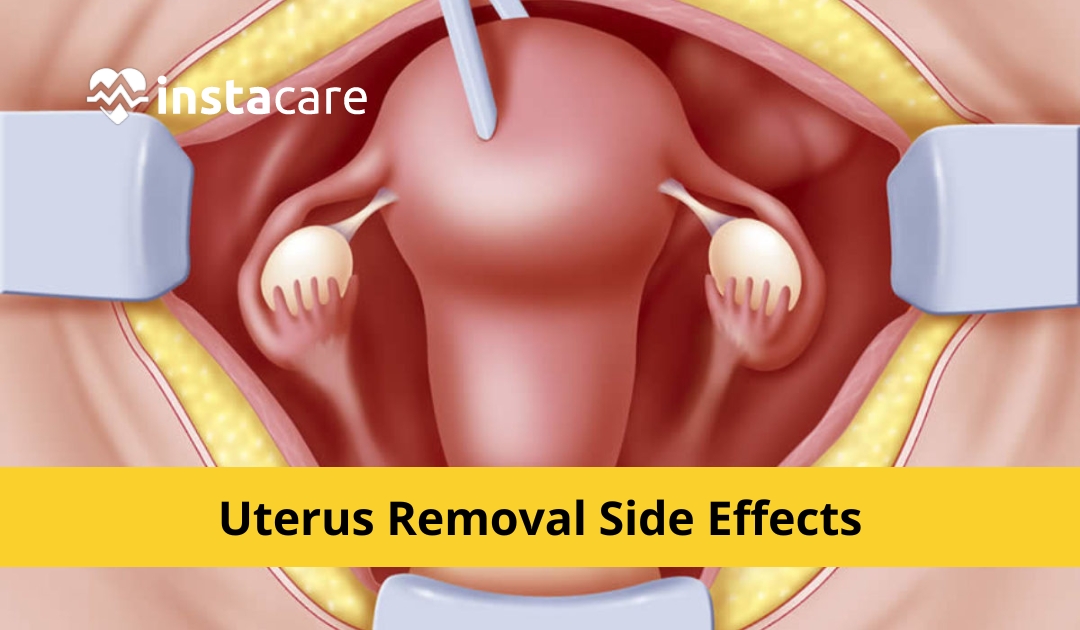Are you considering a hysterectomy? This major surgical procedure is often recommended as a solution for various issues related to the uterus, and it can provide numerous health benefits. However, it’s important to understand all the potential side effects of having your uterus removed in order to make an informed decision about whether or not this is the right choice for you. In this blog post, we look at the risks and rewards associated with uterine removal so that you can go into surgery knowledgeable and confident in your decision-making process.
What is hysterectomy?
Hysterectomy is a surgical procedure that involves the removal of a woman's uterus. This surgery is usually recommended for women who have health issues related to their uterus such as fibroids, endometriosis, or uterine cancer. While the idea of removing an organ may seem daunting, the surgery has come a long way in recent years and can now be performed using minimally invasive techniques, which can result in a shorter recovery time.
However, it is important for women to fully understand the benefits and risks of the procedure before making a decision. Talking to their doctor and gathering information can help women make informed decisions about their reproductive health.
Major hysterectomy side effects
Major hysterectomy side effects can vary from person to person, but they can greatly impact a woman's physical and emotional wellbeing. Some of the most common physical side effects include pain, bleeding, infection, and complications with the urinary and digestive systems.
These can last up to six weeks after the procedure. However, the emotional side effects can last even longer. Women may experience feelings of loss, sadness, or anxiety due to the removal of the uterus and the future implications on their ability to have children. It's important for women undergoing a hysterectomy to seek out support from loved ones and healthcare professionals to help manage both the physical and emotional side effects.
Physical side effects of removing uterus
Removing the uterus, whether due to a medical condition or by choice, can have physical side effects that may affect a woman's quality of life. One of the most immediate effects is pain, which may last for several days post-surgery. In addition, women may experience fatigue, constipation, and bloating due to the anesthesia and medication used during the procedure.
Hormonal changes may also occur, causing menopausal symptoms such as hot flashes and mood swings. Some women may also experience sexual dysfunction and pelvic floor disorders, which can be addressed through rehabilitation therapy. Despite the potential for physical side effects, many women find relief after the removal of their uterus and are able to live healthy, happy lives.
View More: Treating Vaginal Pain During Pregnancy - 9 Proven Strategies For Moms-To-Be
Emotional uterus removal side effects
The decision to have a hysterectomy is not an easy one, and emotional side effects can be unexpected and difficult to manage. Women may experience a wide range of emotions, such as sadness, anger, grief, and loss, after undergoing a hysterectomy, which can be difficult to cope with. The emotional impact of a hysterectomy can be particularly challenging, as the procedure is often associated with the loss of fertility and can affect a woman's sense of femininity and identity.
Nevertheless, it is important for women to acknowledge and discuss their feelings with their healthcare providers to ensure they receive the support and care they need. Although the emotional effects of a hysterectomy can be overwhelming, they are often temporary and can be managed with the right support and self-care strategies.
Body changes after uterus removal
Uterus removal, also known as a hysterectomy, is a surgical procedure that can result in significant changes to a woman's body. This procedure involves the removal of the uterus, which can have lasting effects on hormone levels, sexual function, and overall physical wellbeing. Women may experience hot flashes, loss of libido, and even potential long-term risks such as bone loss. However, it's important to note that not every woman will experience these changes in the same way.
Some may maintain a healthy hormonal balance and enjoy a fulfilling sex life after surgery. Despite the challenges, hysterectomy can be a life-saving procedure for those dealing with serious medical conditions. The key is to understand and prepare for the potential physical changes and work with your medical team to mitigate any negative effects.
View More: A Beginners Guide To Laparoscopic Surgery - What You Need To Know
Conclusion
Hysterectomy has the potential to decrease a woman's risk of uterine cancer and other serious illnesses in addition to relieving symptoms caused by uterine disorders. While the procedure may help improve one’s overall health, it is important to be aware of all the associated risks, potential complications and side effects before deciding to have a hysterectomy. This post is intended to help give women a better understanding of what they can expect in terms of side effects should they choose to go ahead with the procedure.
It's always best to educate yourself on your own body and how it will be affected by uterine removal so that you can make an informed decision about whether a hysterectomy is suitable for your unique needs. With an understanding of the process and risks involved, women can set off on the road to recovery from their gynecological conditions with peace of mind.
Please book an appointment with the best Gynecologist in Lahore, Karachi, Islamabad, and all major cities of Pakistan through InstaCare, or call our helpline at 02137136090 to find the verified doctor for your disease.

